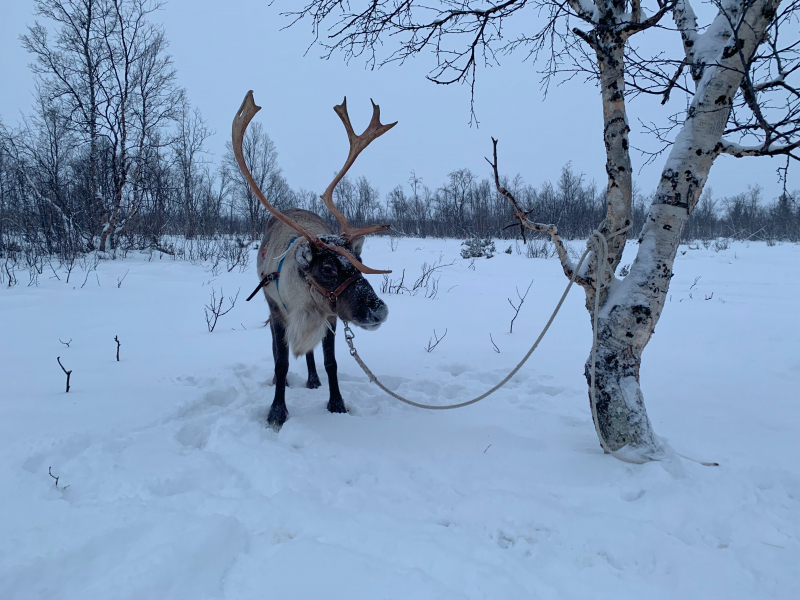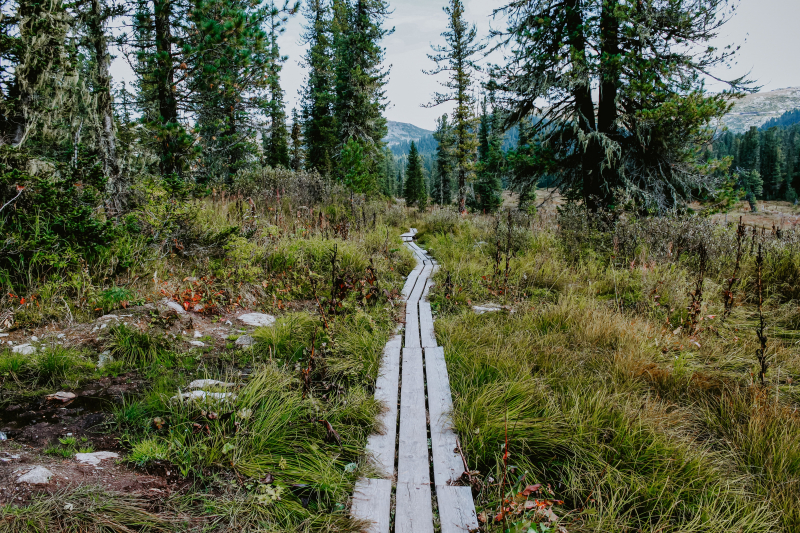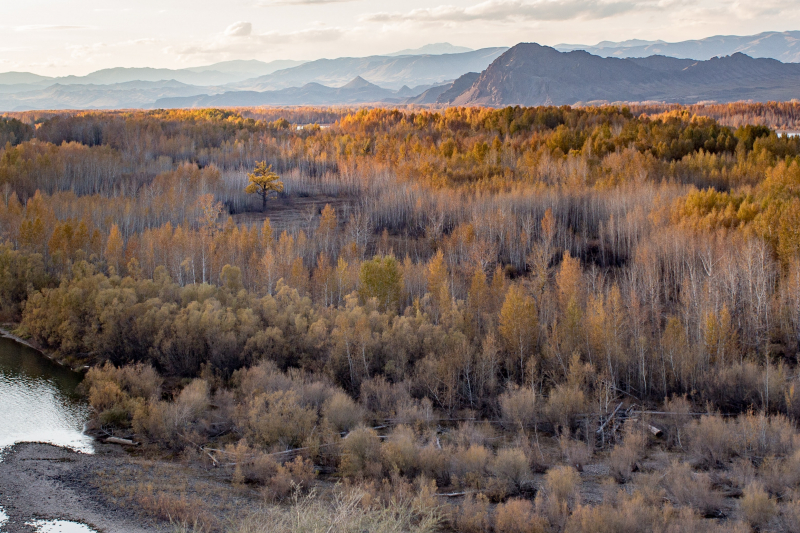Western Siberia, you say?
Let’s get our bearings first. Yamal literally means the end of the earth in Nenets, the language of one of the native people of the peninsula, which is quite an accurate description. This 700 km-long stripe of land is covered with tundra and a whole variety of lakes. The river Ob meanders around it. As you can imagine (though I hardly can!), the climate there is not for the faint of heart – the average temperatures barely reach 10 C even in July, while the land itself tends to be covered with around 50 cm of snow. What can possibly attract people to this kind of place, you ask? Well, historically, and quite predictably, it was natural resources – formerly, furs, fish, and fossil ivory, and now – natural gas. But those are not the images I want you to associate with this region. In this article, Yamal for us is the land of nomad people with age-old traditions, reindeer, and the place of life in constant movement.
Nenets, the reindeer herders
Some say that the Nenets, the local people of the Yamal peninsula, are the “most nomadic” in the world – and even if that’s not true, they are definitely one of the few true nomads left in the world. Whereas for us city-dwellers it’s hard to imagine a life not driven by weekdays and weekends, train schedules and deadlines, for the Nenets life revolves around their reindeer. For it is for the animals and their change of needs that they have to move around in the first place. In different seasons, reindeer require different plants, sometimes abundant in the lands with fewer firewood or other conditions not favorable for people. In those cases, the Nenets make the choice that would suit the reindeer better, as people can deal with the challenge.
And they do so – by staying on guard and noticing the smallest changes in the wind. As you can imagine, the weather plays quite a role in nomadic life, which has led the Nenets to come up with dozens of superstitions and signs about the coming snowstorm. Once it strikes, movement is stalled until the weather calms down. To orient themselves after such a tantrum of nature, the Nenets, first of all, determine where the wind is blowing by the direction of zastrugi (yes, it is an actual Russian-originating English word; and yes, of course it is about the snow) left by the storm. Generally after years spent in tundra, they learn to navigate among the seemingly indistinguishable hills and glades in the snow. Thus, they exist in a certain symbiosis, one might say, not only with their reindeer, but with nature as a whole.

Credit: Secret Travel Guide (@secrettravelguide) on Unsplash.com
A word on the Nenets yurts or чумы (tchumy) that they carry around with them to assemble during the daily stops. It is quite interesting how the Nenets use snowmobiles and smartphones and, at the same time, each herd has its own holy reindeer and women are forbidden to ride them due to the existing beliefs on sacral purity. On the whole, everyone in a group of people moving together has a number of responsibilities and duties they have to fulfill – and rules they have to follow.
The most interesting rules, as usual, are the ones not spoken but known to everyone. Such as, for example, the notion that each guest has to be welcomed with cups of tea (the more, the better) and the actual conversation won’t commence before ten cups at least are not gulped down by the visitor. The Nenets are very careful about everything that has to do with words – talking, listening, keeping your promise – and won’t listen to you if you bring up business or the matter at hand right at the door. That is, if you reach the door at all – if visited by someone unwelcome, no matter what time of day it is, the Nenets will simply start getting ready to sleep. With such crystal clear etiquette, who even needs words, right?

Credit: pure julia (@purejulia) on Unsplash.com
Welcoming constant change
You might think that there is nothing you can learn from the people living, or rather, moving deep in the northern tundra but I personally found their philosophy (and advice on moving house) quite useful. Here are some takeaways:
-
Remember why you are doing it (basically, anything, I’d say). For the Nenets, the answer is quite simple – they are there for the reindeer, no questions asked. What is it that drives you? What would be reason enough to explore a land covered with snow at -50 C?
-
Imagine that you are comfortable with the move (or change). We usually view it as something burdensome and associate it with a lot of stress, but what if change was actually something enjoyable, something we grow so used to that it becomes our stability?
-
Find a designated place for every little thing you own. If there is no place for something, then you definitely don’t need it for your next move.
-
Keep your loved ones (originally, children, but I am paraphrasing) close. I think this doesn’t even need clarifying – whatever Pavel Durov might advise us on his Telegram channel, being surrounded by your closest people is a boost in any situation.
-
Follow someone experienced. If you are venturing somewhere new, find a person who’s already been there and follow them. Or, closer to our reality, don’t hesitate to ask for advice when busy with a new undertaking – chances are, you’ll save yourself a lot of trouble.
Who knows how soon our next chance to experience Yamal first-hand will come, but a chance to learn more about Russian wisdom is right at your fingertips. Here are our takes on the essential Russian proverbs, some riddles to test your wit, and the hidden meanings of Russian lullabies.




